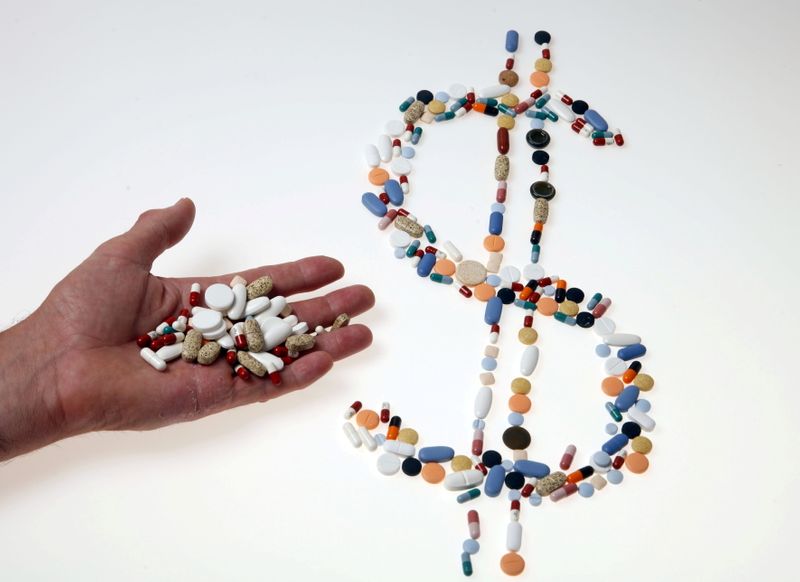By Ahmed Aboulenein
WASHINGTON (Reuters) - U.S. President Joe Biden and his fellow Democrats promised voters sweeping drug price reform in their signature social spending bill, but agreed to move ahead with a far less ambitious proposal after facing opposition from centrist dissenters in Congress.
The plan could still fail as hurdles remain to approving the broader spending package, known as "Build Back Better." Should it survive, the plan would authorize the federal government to negotiate drug prices for the first time.
WHAT WAS AGREED?
The drug pricing agreement allows the federal government's Medicare health insurance program for the elderly to start in 2023 negotiating the prices on 10 of the costliest drugs for diseases such as cancer and diabetes that have only one supplier, with the new prices taking effect in 2025. The number of drugs that will be subject to Medicare negotiations will increase annually until it reaches 20 in 2028.
The government will select from a list of drugs it spends the most on in Medicare Part B, which covers physician-administered drugs such as infusions and most injectables, and Part D, which covers most prescription drugs sold at pharmacies.
Conventional prescription drugs are protected from negotiation for the first nine years after they are launched. More complex biologic drugs, which are made from living cells, are protected for 12 years.
Drugmakers that refuse to negotiate will owe an excise tax.
The agreement introduces a $2,000 annual cap on out-of-pocket costs for people 65 or older, sets a $35 monthly cap on insulin prices, and penalizes companies that raise prices faster than inflation for Part B and D drugs as of Oct. 1, 2021. The inflation cap also applies to private insurance markets.
WHAT HAD BEEN PROMISED?
The agreement leaves out significant provisions from the drug price reform framework Democrats adopted, a law known as The Lower Drug Costs Now Act introduced by Representative Frank Pallone of New Jersey.
That bill would have empowered the government to negotiate the price of insulin and the 250 single source brand-name drugs that Americans spend the most on. Crucially, it extended the negotiated prices to those covered by private insurance.
It would have also capped prices at 120% of the average price in other wealthy countries and allow the government to fine drugmakers who refuse to negotiate, fail to agree on a price, or overcharge after agreeing on a price.
Unlike the current agreement, its inflation cap would have also reversed previous price increases by on drugmakers through a one-time retroactive rebate to the government.
WHY DID IT FAIL?
Republicans oppose allowing the government to negotiate drug prices, echoing the pharmaceutical industry's main argument that federal pressure on prices would lead companies to curb investment in research and kill innovation. They have supported efforts to bring more competing drugs into the market, including cheaper generic versions, as a way to bring down prices.
They were joined in their opposition to The Lower Drug Costs Now Act by dissenting Democrats, some of whom advocated alternative scaled-back reforms. Several of those Democratic lawmakers are among the largest recipients of industry campaign donations.
Four centrist House Democrats - Scott Peters of California, Kathleen Rice of New York, Kurt Schrader of Oregon, and Stephanie Murphy of Florida - voted against the bill.
It also faced opposition from Senators Kyrsten Sinema of Arizona and Robert Menendez of New Jersey. Democrats have razor-thin majorities in both chambers of Congress; one senator or three representatives are enough to kill a bill.

Peters and Schrader introduced their own drug price reform bill, The Reduced Costs and Continued Cures Act, which covered Medicare Part B drugs only and would have generated lower savings. Rice and Murphy backed it.
The final agreement between the White House and congressional Democrats is largely based on it, but expands it to make Medicare Part D drug prices negotiable and add other provisions like the insulin and inflation caps. Peters, Rice, Schrader, Murphy, Menendez and Sinema all back it.